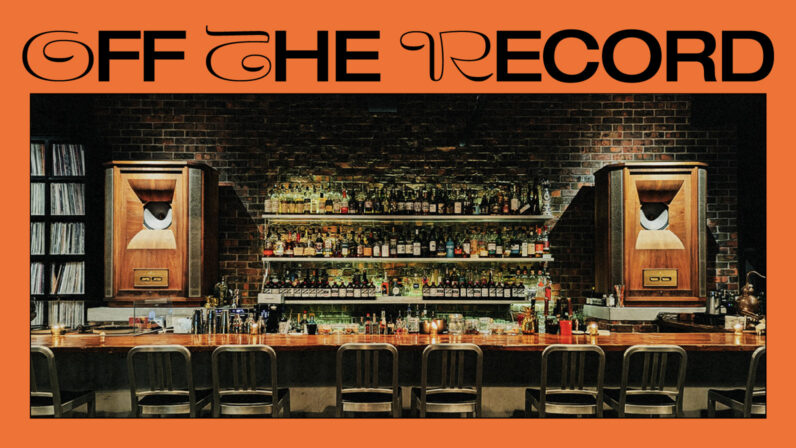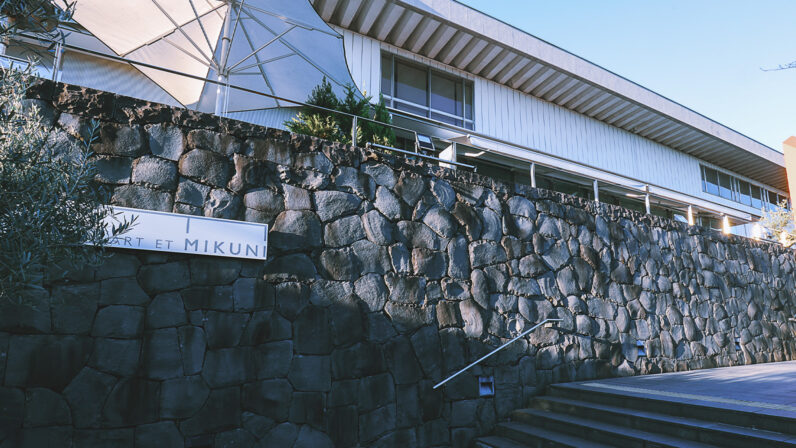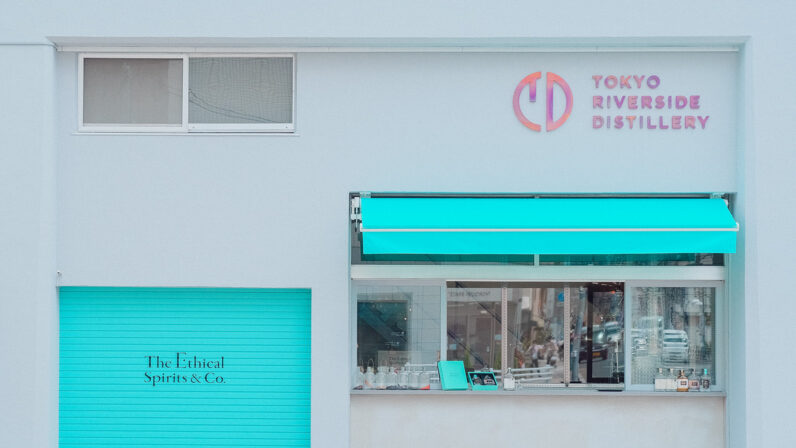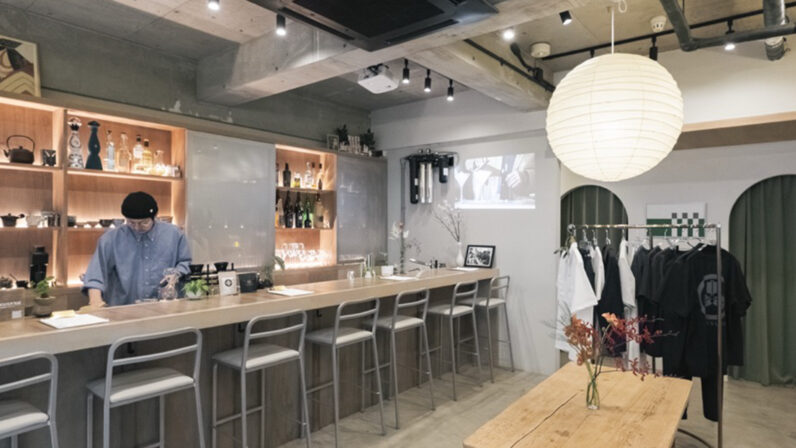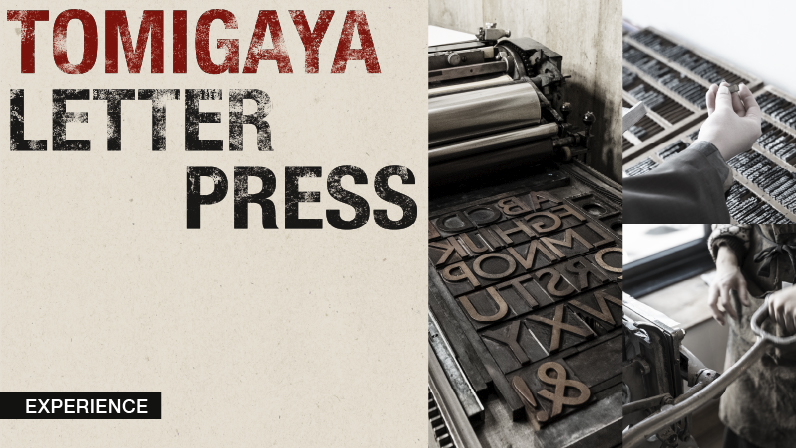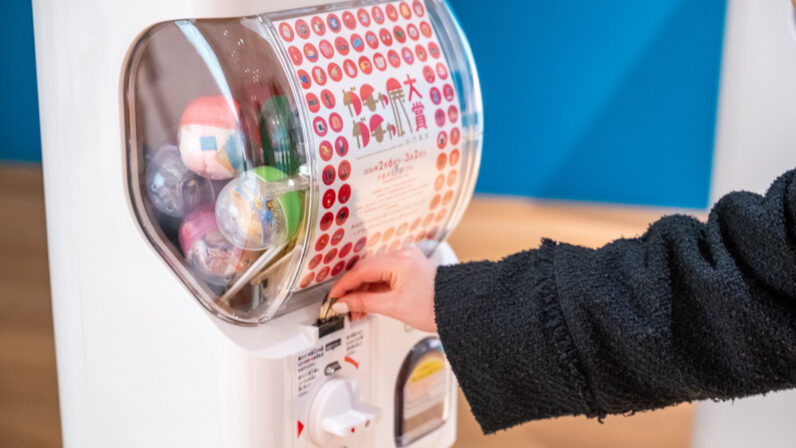In his ongoing series【Shibuya Deep Dive】, we explore Shibuya’s lesser-known cultural hotspots, guided by DJ SHUNSUKE, who’s been spinning tracks in clubs for over 20 years. This time, he visits Murugi, a legendary curry shop founded in 1951. For more than 70 years, the shop has been a beloved fixture in Shibuya’s food scene, known for its one-of-a-kind, time-honored flavors.
He also sat down with Yugo Katsuyama, the third-generation owner, to learn more about the restaurant’s history and enduring philosophy.
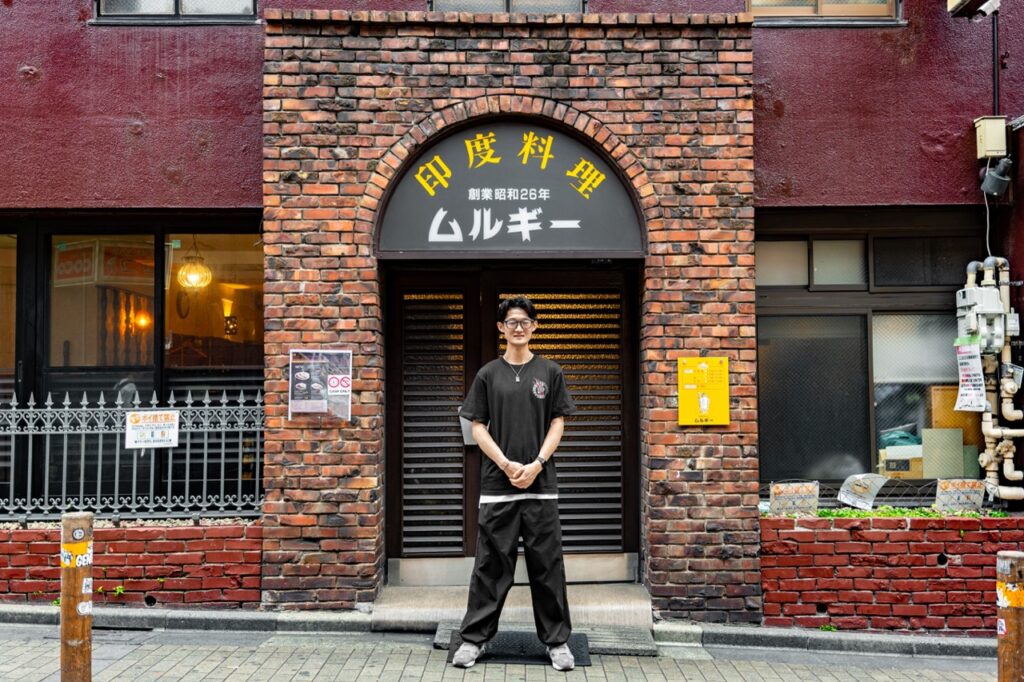
In 1951, as Shibuya buzzed with the energy of postwar recovery, a small restaurant quietly opened its doors. Originally named Ecuriya, it would later become known as Indian Cuisine Murugi. Long before it became a neighborhood gem, the story of the shop began with the overseas experiences of a mining engineer named Kensaku Matsuoka.
A Taste Discovered in Burma: The Origins of Murugi
Murugi was founded in 1951 by Kensaku Matsuoka, the grandfather of current third-generation owner Yugo Katsuyama.
“My grandfather was originally a mining engineer,” Yugo explains. “He used to travel overseas a lot for work, especially to what was then Burma (now Myanmar), on mineral surveys. During one of those trips, he came across a local curry shop and became a regular. He got to know the owners well, and I think they may have even shared a bit of their cooking methods with him.”
After the war, Kensaku returned to Shibuya and opened a small restaurant called Ecuriya, serving curry he had adapted to suit Japanese tastes, inspired by his experiences abroad. The shop was later renamed Indian Cuisine Murugi, becoming the foundation for the long-running restaurant it is today.
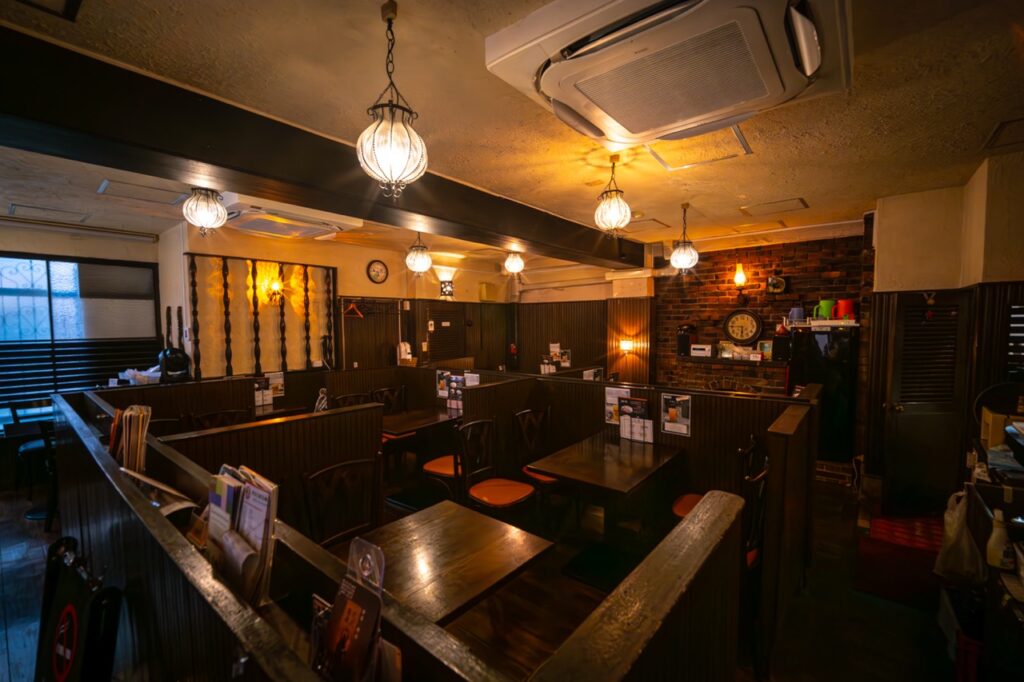
“Nowadays, we focus solely on curry, but I’ve heard that back then there were many dishes, including chicken dishes, salads, as well as different types of curries. The name ‘Indian Cuisine Murugi’ was chosen to make it easy for customers to understand, and that legacy still remains on the shop’s sign.”
Also of note, Murugi means chicken in Hindi. Although many people nowadays might be confused or question whether it’s Indian food based on the current menu and flavors, they’ve kept the name unchanged out of respect for the sign their grandfather put up.
The Journey of Murugi’s Third Generation to Taking Over the Family Business
Looking back honestly on what first made him want to take over Murugi, Yugo shares:
“When I was a kid, I honestly wished the restaurant didn’t exist. Since Murugi was my mother’s family business, my father worked as a company employee, but my mother was always at the shop. That meant I often stayed home alone without either of my parents, and I felt pretty lonely. Even though my dad had a good job and we weren’t struggling financially, I wondered why my mom had to work from morning until night and then come home to cook and do chores late into the evening, unlike other families. I felt lonely sometimes, and to be honest, I didn’t have good feelings toward the restaurant that made my mom work so hard or toward my grandfather who started it.”
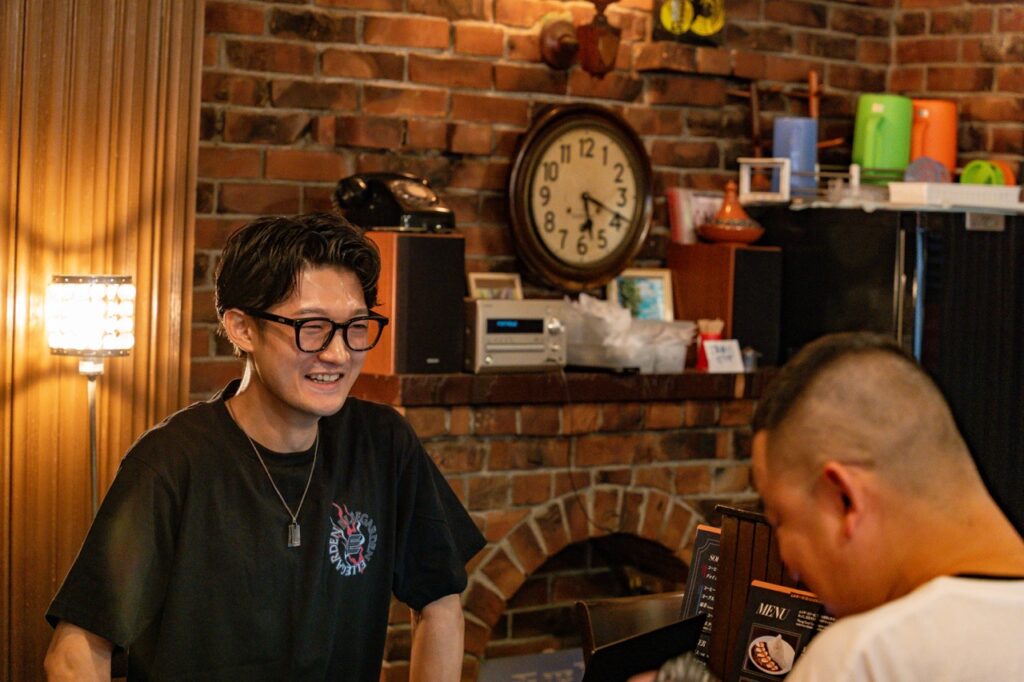
Since his grandfather, the founder, passed away before he was born, Yugo had no personal memories of him and carried complicated feelings toward both his grandfather and the restaurant throughout his childhood and into high school.
He says that his feelings began to change when he became a university student. Wanting to help his mother, he first stood behind the counter at Murugi and was surprised by the many regular customers who came in. There were people who visited every week on a set day, others who had been coming for more than half a century since his grandfather’s time, and even those who traveled from afar and lined up in long queues. Seeing this, he truly felt how deeply the restaurant was loved.
For the first time, he began to understand. He realized what his mother had been trying to protect, even at the cost of own dreams. A sense of gratitude toward his grandfather, who left this legacy, grew in him, along with a strong desire to carry the shop forward to the next generation. This was the moment he decided to take over the family business.
Memories from Childhood and Murugi’s Flavor at Home
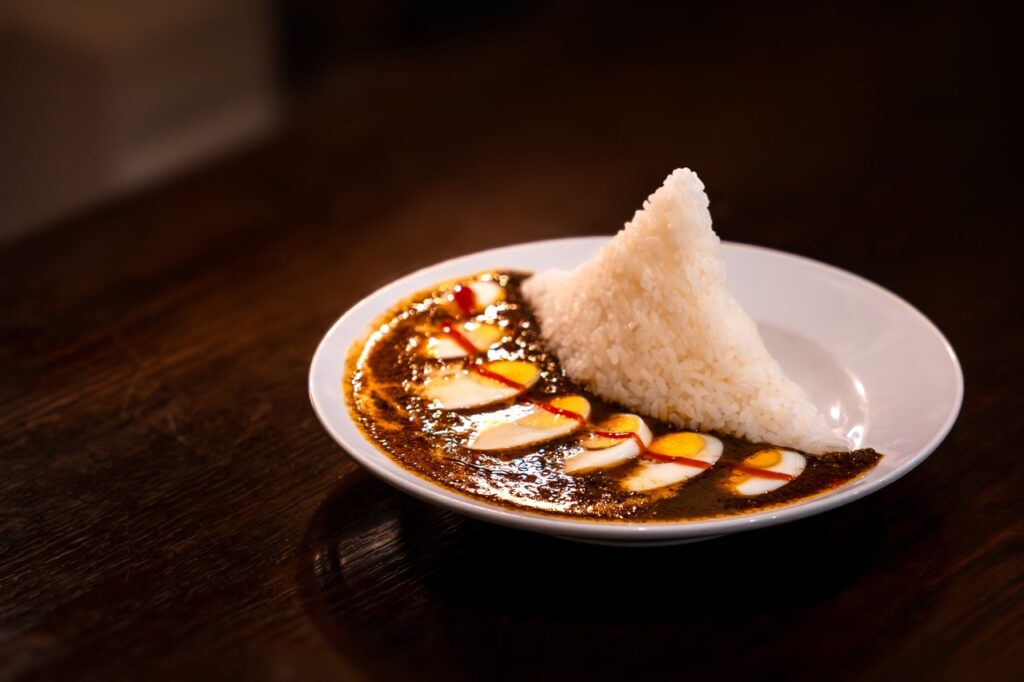
Yugo first tried Murugi’s curry when he was in late elementary school. Since it was too spicy for him to eat straight, his mother would mellow it out to make it milder. “I really loved that flavor, it was so good. I was always happy when she brought some home,” he recalls, showing how special Murugi’s curry was in his family life.
Though he had mixed feelings about the restaurant growing up, he laughs and admits, “I was a growing kid, so good food always won me over.” One of his most vivid memories is of a dish his mother made by stir-frying rice and curry together in a pan. They called it curry pilaf. “It was just so delicious,” he recalls fondly. That pilaf actually used to be on the menu during Yugo’s grandfather’s time under the name curry char. His mother adds, “I’ve had it before, but I never learned how to make it properly, and just kind of made it up myself.”
Today, the menu is simple, just curry, curry toppings, salads, and drinks. But as mentioned earlier, they used to offer a wider range of dishes. “There used to be all kinds of things, but now it’s just curry,” his mother explains. While the menu has been pared down, there’s a certain sense of clarity and focus in that choice.
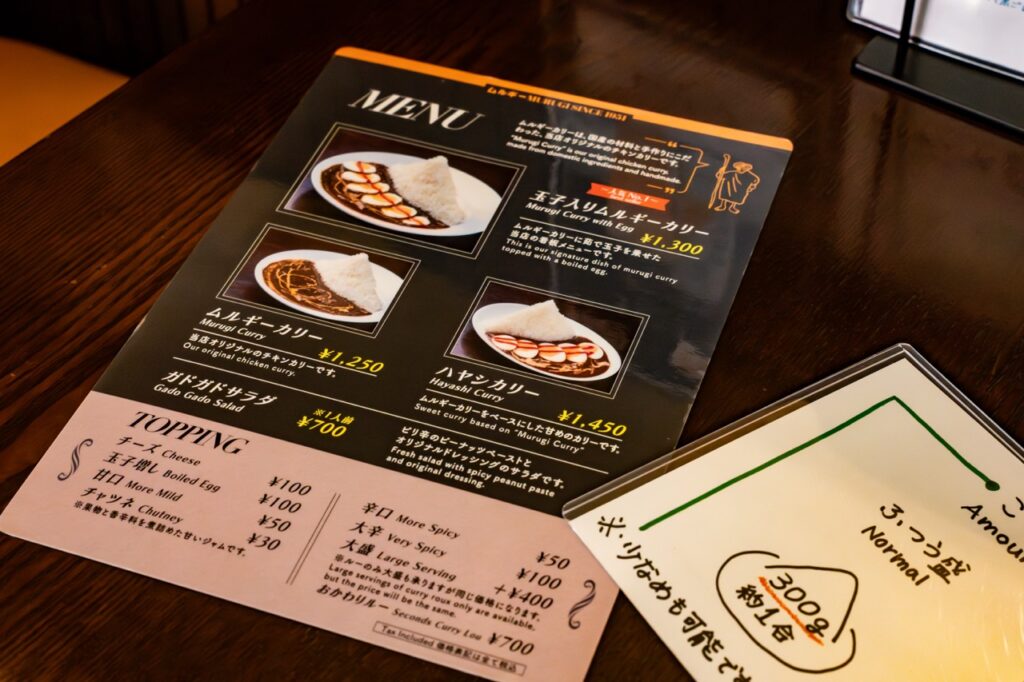
“It’s almost too simple, right? Like, the only difference between these two dishes is whether there’s an egg or not” he says with a laugh, though it’s clear he’s fond of the current streamlined menu.
Speaking about the Hayashi Curry, he explains, “The base is actually the same. It’s just made milder for people who can’t handle spicy food.” As he notes, “Customers who come here because they like spicy food will try it once, but they’ll never order it again,” showing just how central the Murugi Curry remains to the restaurant’s identity.
Carrying On the Founding Flavor and Presentation
Yugo says the most important part of making Murugi’s curry is staying true to the flavor created by his grandfather. His mother was the only one to learn the recipe directly from him, and his instructions back then were more intuitive than precise measurements, which made recreating the taste a real challenge.
Over time, she refined the process by quantifying what could be measured and making careful adjustments so the flavor stayed consistent. Thanks to her efforts, the curry’s distinct, unchanging taste has been preserved for decades.
Murugi’s distinctive plating has also remained the same since the restaurant’s beginnings. The tall, distinctive mound of rice is said to come from Kensaku Matsuoka’s love of mountains, and the white liquid poured over the curry is milk, meant to resemble melting mountain snow.
This striking look sets Murugi’s curry apart, while the impact, atmosphere, and overall style have become a hallmark of Murugi’s identity. As for exactly how the mountain-shaped rice is formed, the staff simply smile and say it’s a trade secret.
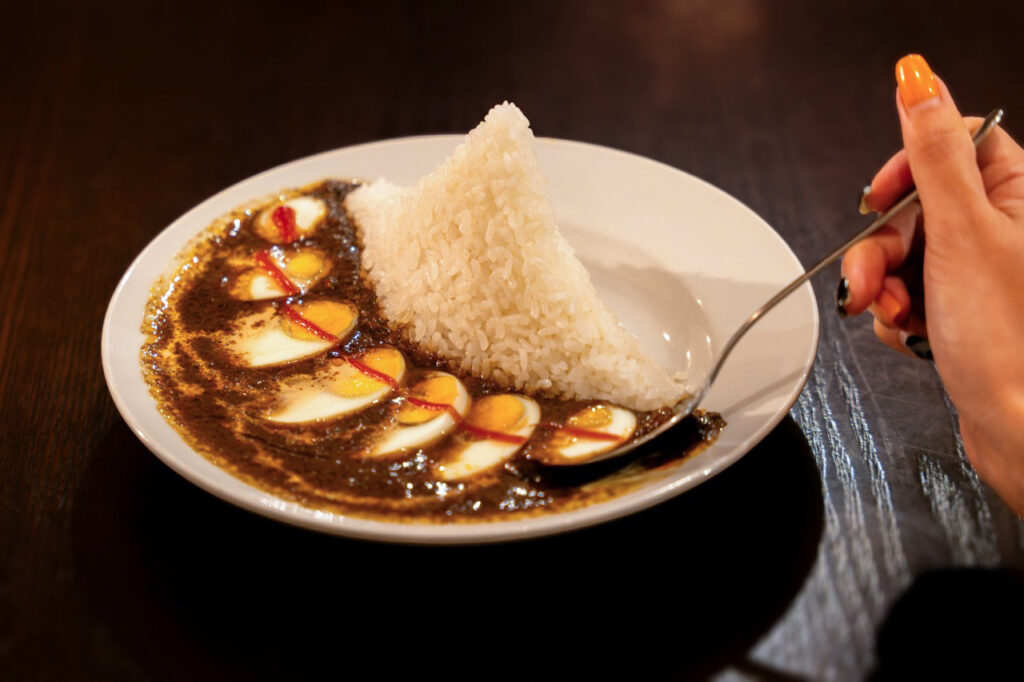
Changes in Operations with Decisions to Stay True
One major change Murugi had to make over its long history was adjusting its operating hours. When the restaurant first opened, late-night dining options nearby were scarce, so Yugo’s grandfather kept the shop open until late. He recalls, “My mother used to say that when she was a kid, my grandfather always came home late,” reflecting on those days.
About 35 years ago, Yugo’s grandfather had to step away from the business due to illness. At the time, his daughter, Yugo’s mother, was pursuing a career as a professional photographer but decided to change paths and take over the restaurant to keep it running. Later, Yugo’s aunt joined, and the two sisters managed the shop together for over 30 years.
However, balancing raising children and household duties alongside running the restaurant took a toll on their time and energy. Yugo explains, “Rather than pushing themselves to exhaustion, they chose to prioritize keeping the restaurant open by shortening the hours.”
As a result, dinner service was discontinued, and the originally Friday-only day off expanded to include Tuesdays and holidays. Overall, the business scaled back its operations.
Starting in 2025, however, they’ve begun gradually expanding their hours again, including bringing back dinner service on some days. Yugo notes, “This will be the first time in about 30 years that our hours have been extended.” After years of only cutting back, this marks an important turning point.
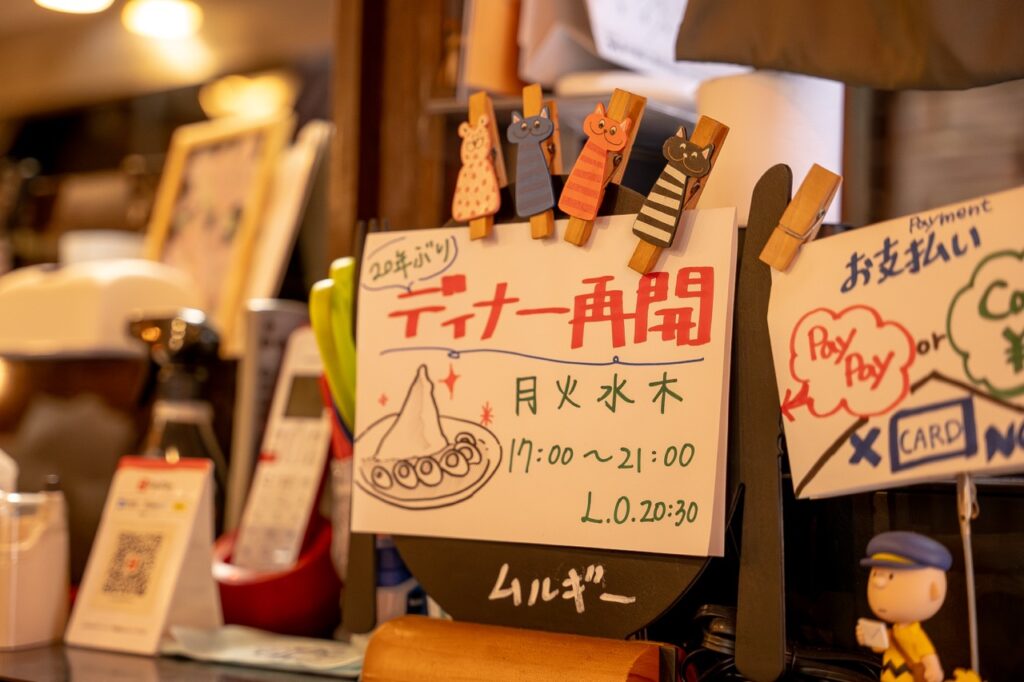
Due to the shortened operating hours, the number of customers visiting during business hours increased, and regulars often had to wait. When media coverage added to this, the crowding became even more intense, so the shop had purposely avoided interviews until now.
Yugo explains, “My mother and aunt kept going because they strongly felt it was for the longtime customers who have been coming for years.”
“Of course, new customers matter too, but if regulars couldn’t enjoy their meals or even get a seat, they felt it was better not to do interviews,” he says, showing how much the business values its loyal patrons.
He adds, “It’s not about who’s more important, every customer matters, but this is an example of how Murugi embraces change to protect what’s really important.”
Murugi’s Charm Beyond Flavor and the Trust Built by the Second Generation
When Yugo joined the business and saw his mother and aunt in action, he realized that while keeping the taste, presentation, and menu intact was important, the true reason the restaurant had endured for so long was the two women’s personalities.
“My mother and aunt are both like moms to everyone. In a good way, they’re just very caring and a bit over-involved.” They have a close relationship with their customers and naturally pay attention to their work, family life, and health. For instance, when customers come with young kids, they sometimes offer rice with furikake seasoning without even being asked.
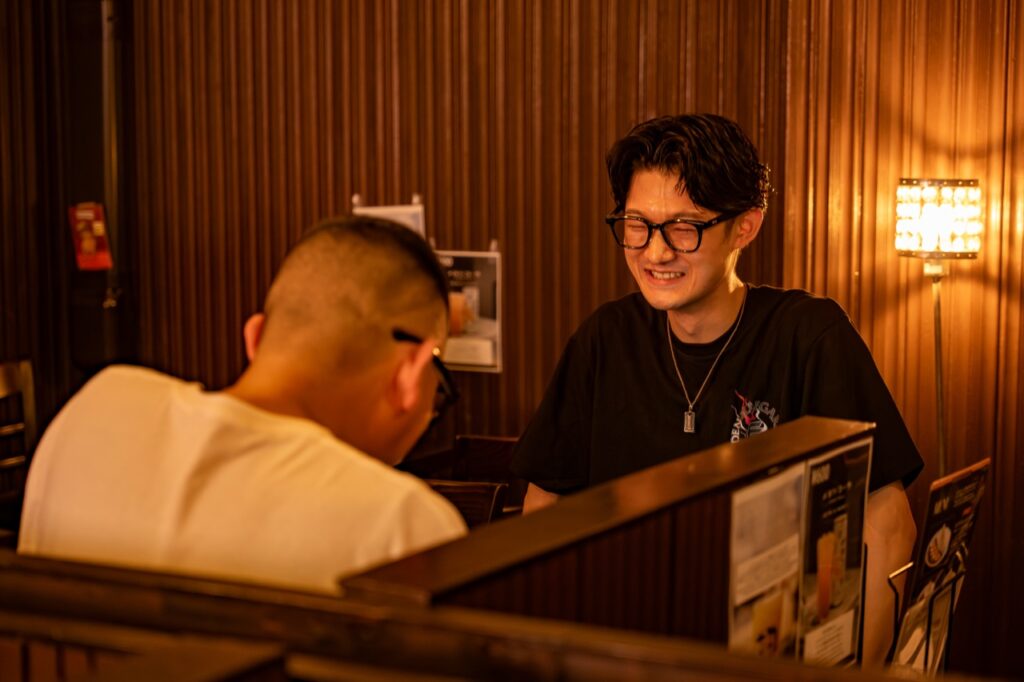
Murugi has always been known for its generous portions, but even when customers order smaller servings, the staff often check in with them, asking, “Are you sure that’s enough?”
Yugo says, “I think it’s the motherly nature in them wanting to make sure everyone eats well.”
He admits, “There are things I hold back because I worry about being a bother, but my mom and aunt do whatever they believe is best for the customers, no matter what others think. That genuine care is why customers have loved them for so many years.”
Even though the hours were shortened during the second generation, regulars understood and supported the change, saying things like, “It’s okay, we’re just glad you’re keeping the place going.” Yugo believes, “The greatness of the second generation lies in having built those kinds of relationships.”
Now as the third generation, Yugo has stepped in to help run Murugi. But since his mom and aunt are still actively involved, he sees it less as a handover and more as a continuation of their legacy. “I want to carry on not just the flavor, but also the sincere care for customers that my mom and aunt have always shown,” he says. For him, that spirit of hospitality is a vital part of what he’s inheriting.
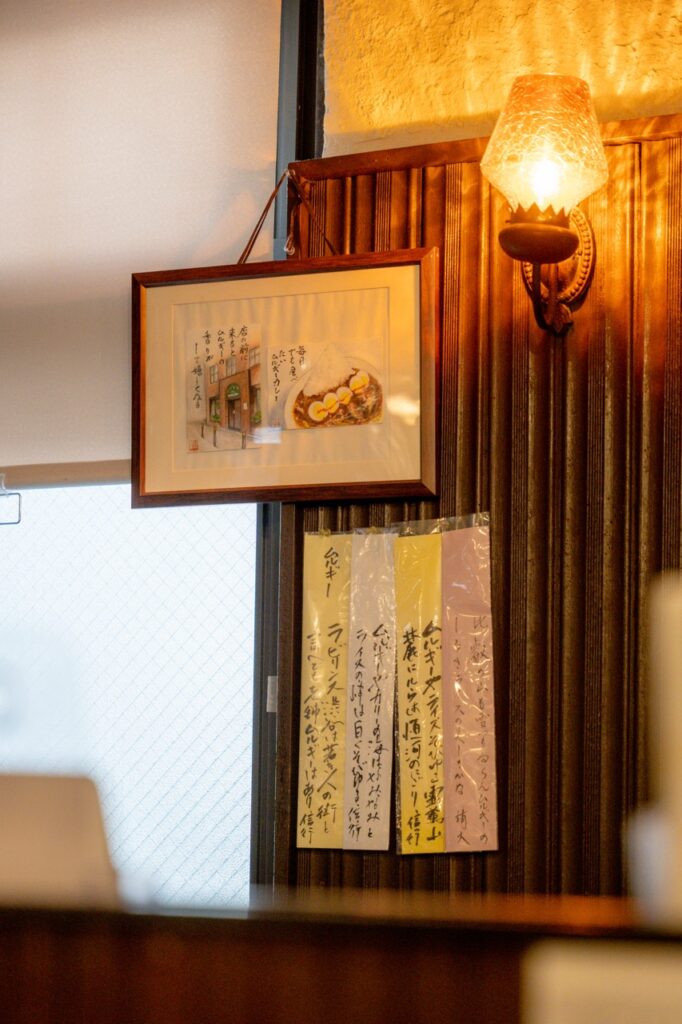
The Future Vision for the Home Away from Home in Shibuya
“I want Murugi to be a place people feel drawn back to, even just on a whim” Yugo shares. He hopes to preserve Murugi not simply as a restaurant, but as a true home away from home in the heart of Shibuya.
Taking over isn’t just about preserving the recipe and managing the business; he’s also nurturing the deep connection with longtime regulars, weekly visitors, and those who cherish Murugi as part of their own memories from school days. He truly feels he’s carrying on the legacy of those personal stories as well.
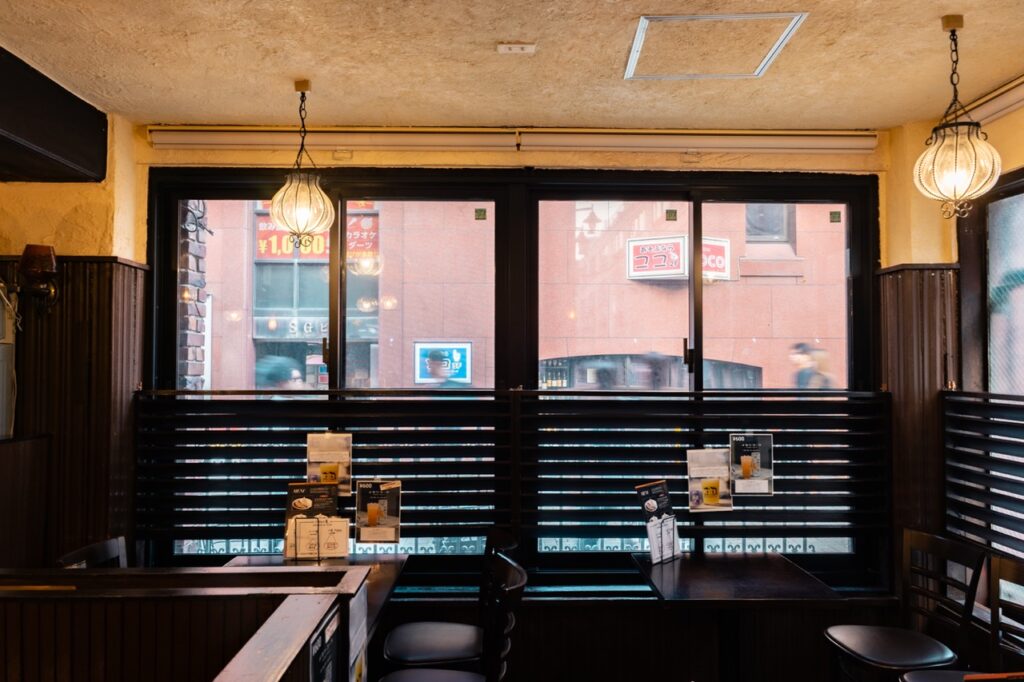
“Shibuya is one of the most rapidly changing neighborhoods in Japan. That’s why I think the greatest significance is the fact that Murugi has stayed in the same spot for over 70 years without changing,” Yugo reflects.
When people return to Shibuya after a long time away, they may be surprised by how much the city has transformed and might feel a little nostalgic or even lonely. But places like Murugi, which have preserved their original flavors, can bring those old memories back to life and offer a sense of comfort, familiarity, and encouragement to keep moving forward. That’s the kind of place Murugi aims to be, a comforting establishment serving as an emotional anchor.
“Looking ahead, I want to strengthen Murugi’s identity as Shibuya’s curry and a true local classic. I hope it becomes a place where even more people feel they can always come back to. Ultimately, my goal is to see Murugi reach its 100th anniversary.”
100 Years and Beyond
What Yugo Katsuyama, the third generation, has inherited goes beyond just the recipe created by founder Kensaku Matsuoka. It also includes the dedication and connections nurtured by his mother and aunt, the second generation, as well as the unique atmosphere of the shop itself.
With all this in hand, Murugi will continue to welcome people as a beloved homebase within Shibuya. Having stood the test of time for over 70 years, Murugi’s story moves quietly yet powerfully forward toward its next milestone, the 100th anniversary.
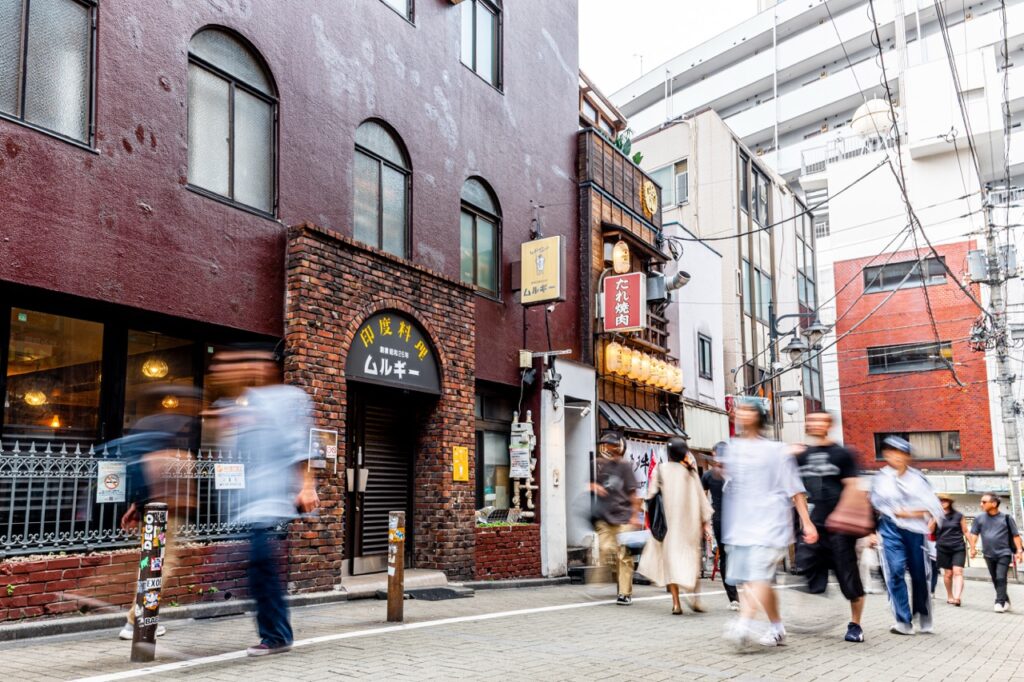
Murugi
Address: 2-19-2 Dogenzaka, Shibuya-ku, Tokyo 150-0043
Business Days: Monday, Tuesday, Wednesday, Thursday (Saturday & Sunday lunch only)
Lunch: 11:30 AM – 3:00 PM
Dinner: 5:00 PM – 9:00 PM
Closed: Fridays and holidays
Website: https://murugi.co.jp/
Instagram: @murugi1951


